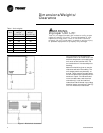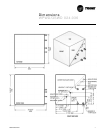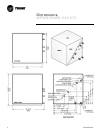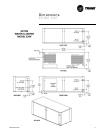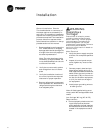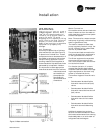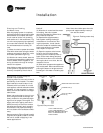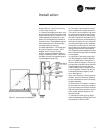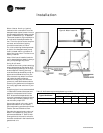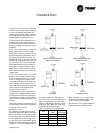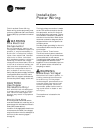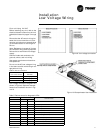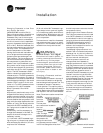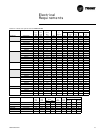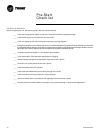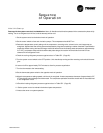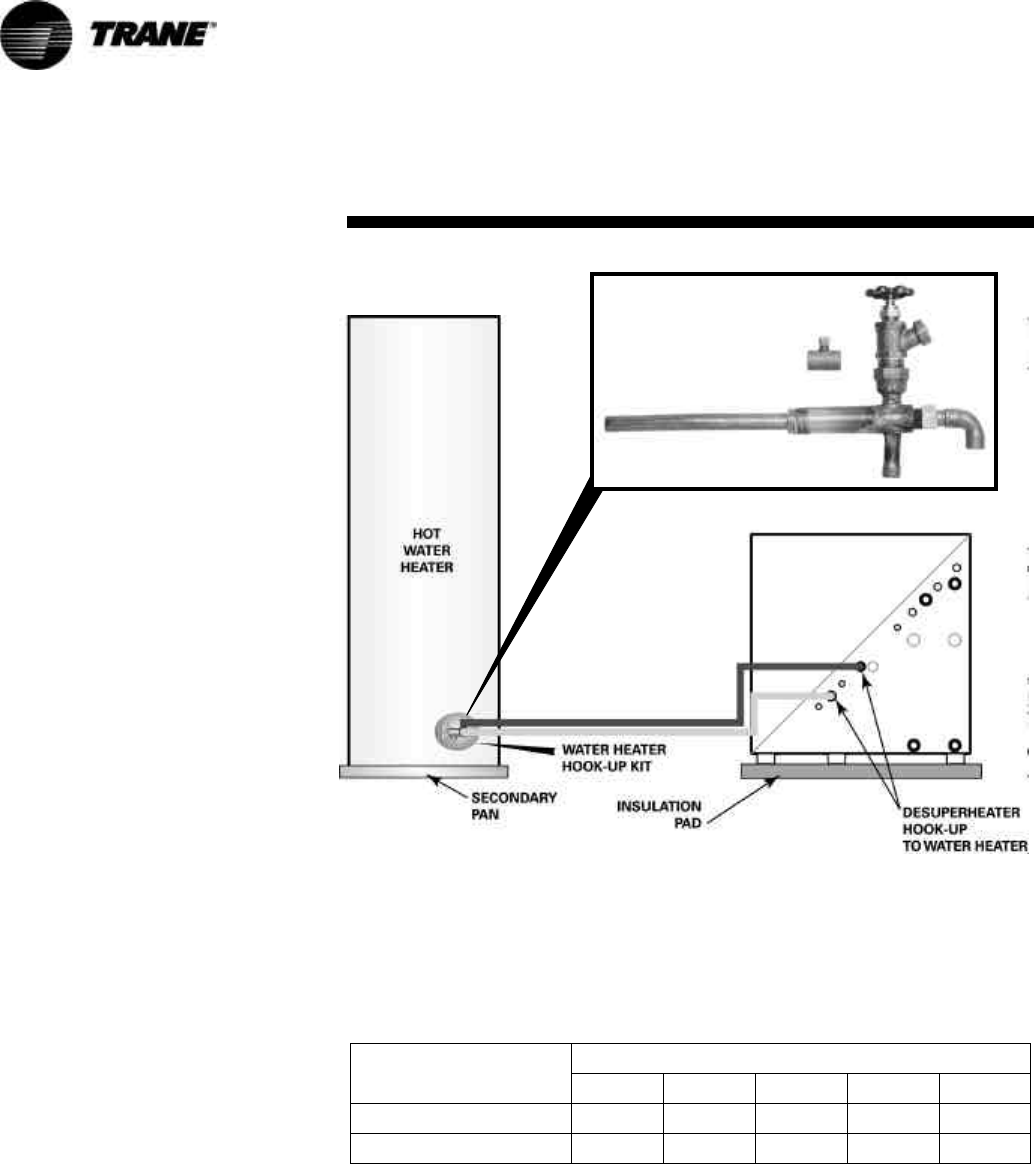
14 WSHP-SVX02A-EN
Water Heater Hook-up (option)
Instructions for connection from the
desuperheater (option) water-in/out to
the domestic hot water heater may be
found in WSHPC-IN-4 or 72-9006-02.
This water heater kit (Figure 8) ships in
all units with the desuperheater op-
tion. The kit is zip tied to the compres-
sor base; and consists of piping
connections and shut-off valve.
For units containing the desuperheat-
er option, the desuperheater pump
fuse is located within a container in-
side of the control box. The fuse is not
factory installed.
Note: If the fuse is installed, and the
unit is started without water in the sys-
tem, pump damage may occur.
Using Antifreeze
In areas of the country where entering
water temperatures drop below 45°F
or where piping is being run through
areas subject to freezing, the loop
must be freeze protected by using an
approved antifreeze solution to pre-
vent the earth loop water from freez-
ing inside the heat exchanger.
Methanol and glycols are the most
commonly used antifreeze solutions.
Consult your geothermal unit supplier
for locally approved solutions in your
area.
Propylene glycol is not recommended
in installations where the water tem-
perature are expected to fall below
30°F. At extreme temperatures, the
viscosity increases to the point where
normal loop circulating pumps may
not maintain proper flow.
If propylene glycol is the only locally
approved solution for anti-freeze,
good engineering practices should be
used to achieve the desired flow.
Calculate the approximate volume of
water in the system by using the re-
quirements detailed in Table 2. Add
three gallons to this total to allow for
the water contained in the hose kit and
geothermal unit.
Table 2: Antifreeze requirements based on volume
Type of Antifreeze
Minimum Temperature for Freeze Protection
10°F 15°F 20°F 25°F 30°F
Methanol 25% 21% 16% 10% 3%
Propylene Glycol - - - - 6%
Installation
Figure 8: Water heater kit



